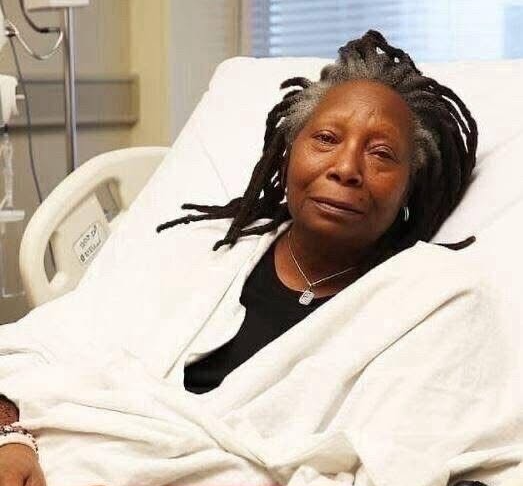In a spine-tingling episode of the popular daytime talk show “The View,” Whoopi Goldberg bravely bared her harrowing and deeply personal journey with endometriosis, leaving viewers gripped and on the edge of their seats. With raw emotion and a palpable sense of urgency, Goldberg passionately questioned why so many women endure years of pain and confusion before receiving an accurate diagnosis. She did not hold back in venting her frustration at the healthcare system, highlighting the glaring gaps in awareness and education surrounding this debilitating condition.
Goldberg, now 67 years old, recounted her own terrifying experience, which began with what seemed like ordinary symptoms but quickly spiraled into a nightmare. Initially misdiagnosed with a urinary tract infection (UTI), she neglected the warning signs, unaware of the real danger lurking beneath. The delay in diagnosis and proper treatment turned her life upside down, showcasing just how easily this disease can go undetected for years.
“I didn’t know what was going on,” Goldberg admitted, her voice trembling with the weight of her memories. “Suddenly, there was a smell, and it looked like cottage cheese.” This shocking and vivid description stunned the audience, highlighting the physical and emotional toll of endometriosis. But the real twist came when Goldberg shared the moment she was finally lucky enough to find a healthcare professional who correctly identified her condition. “I was lucky enough to get to somebody who said, ‘This is called endometriosis,’” she said, emphasizing the rarity of such timely diagnoses.
Is Whoopi Goldberg’s revelation a cryptic cry for help, or a rallying call to raise awareness? The mystery deepens as she directs pointed criticism toward the medical education system, questioning why it often fails to equip practitioners with the knowledge necessary to diagnose and treat this complex disease promptly.
Endometriosis is a condition that affects millions of women worldwide, yet despite its prevalence, the average diagnosis time remains an agonizing six to ten years. Goldberg’s candid confession adds her voice to the growing list of celebrities and advocates shining a light on this enigmatic and often misunderstood affliction. Through her story, the public is invited to join in the suspense and urgency of addressing this silent epidemic. Is she a survivor who has finally found relief, or does the danger still lurk in the shadows, waiting to claim more victims?
